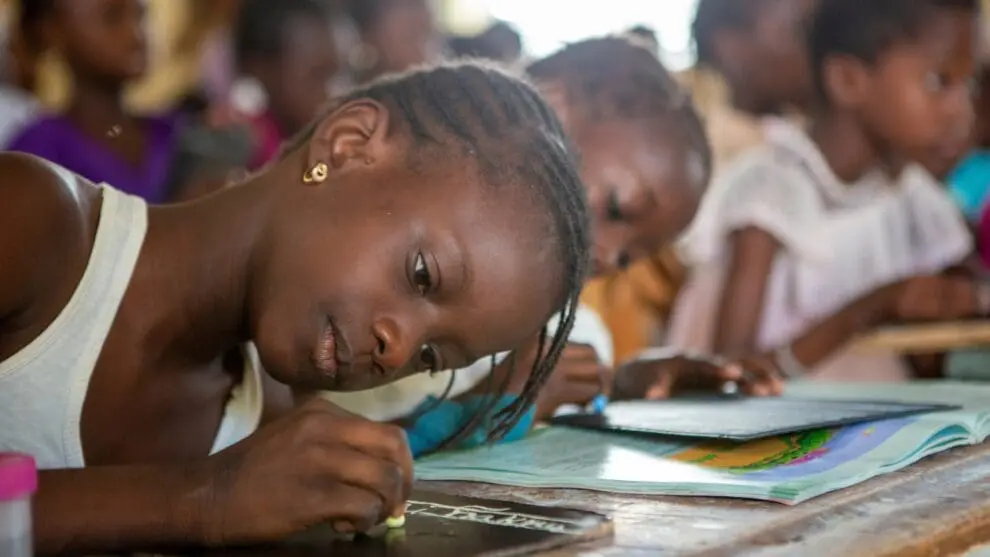
Congress has finally passed its last Fiscal Year (FY) 2024 funding bills, with welcome plus-ups in international funding for vulnerable children, UNICEF, nutrition, and maternal and child health programs. Unfortunately, lawmakers also chose to cut or flat-fund many other key programs that support children around the globe.
Basic education suffered the biggest blow: a $48 million dollar reduction from the previous year. Primary education offers one of the best ways to alleviate poverty and reduce suffering, making this decision seem especially shortsighted in the wake of huge learning losses due to the COVID-19 pandemic.
Worldwide, millions of children are out of school because their families cannot afford to pay school fees and they are working or because they are girls, for whom education is not prioritized. But education is a powerful poverty inoculator, especially for girls. The return on investment multiplies for every additional year a girl stays in school, both in terms of her own earning power and health, and in the nutrition, well-being, and survival of her children.
First Focus Campaign for Children is calling on Congress to expand funding for basic education in FY 2025. (Unfortunately, President Biden’s FY 2025 budget request would also cut education by 30 percent.)
Poverty-focused foreign aid makes up less than one percent of the U.S. federal budget, and yet, this modest account is often where lawmakers choose to make their political points. They cut this year’s foreign aid funding bill by 6 percent. The funding that children receive from that already small amount is minuscule: children receive just 9 percent of that less-than-one percent despite the fact that they make up at least 30 percent of the global population. In some countries, children account for half of the population.
In a rare bright spot, the FY 2024 funding package included a one-year clean reauthorization of the President’s Emergency Plan for AIDS Relief. PEPFAR, as it’s known, is one of the most successful global health programs ever created, so its restoration is a positive step after Congress let it expire last October. But to allow long-term planning and implementation, lawmakers must pass a clean, five-year reauthorization of PEPFAR in FY 2025. The lapse in reauthorization meant that the critically important children’s program for orphans and vulnerable children (OVC) expired, and put the nutrition, schooling, and economic supports for 7.2 million children and their caregivers at risk.
As Congress continues to work through funding issues, it must prioritize critical child-focused measures in its FY 2025 foreign aid funding bill. In particular, it must expand resources for vulnerable children, basic education, and PEPFAR — all life-saving children’s programs that historically have been underfunded, cut, or flat-funded for years.


